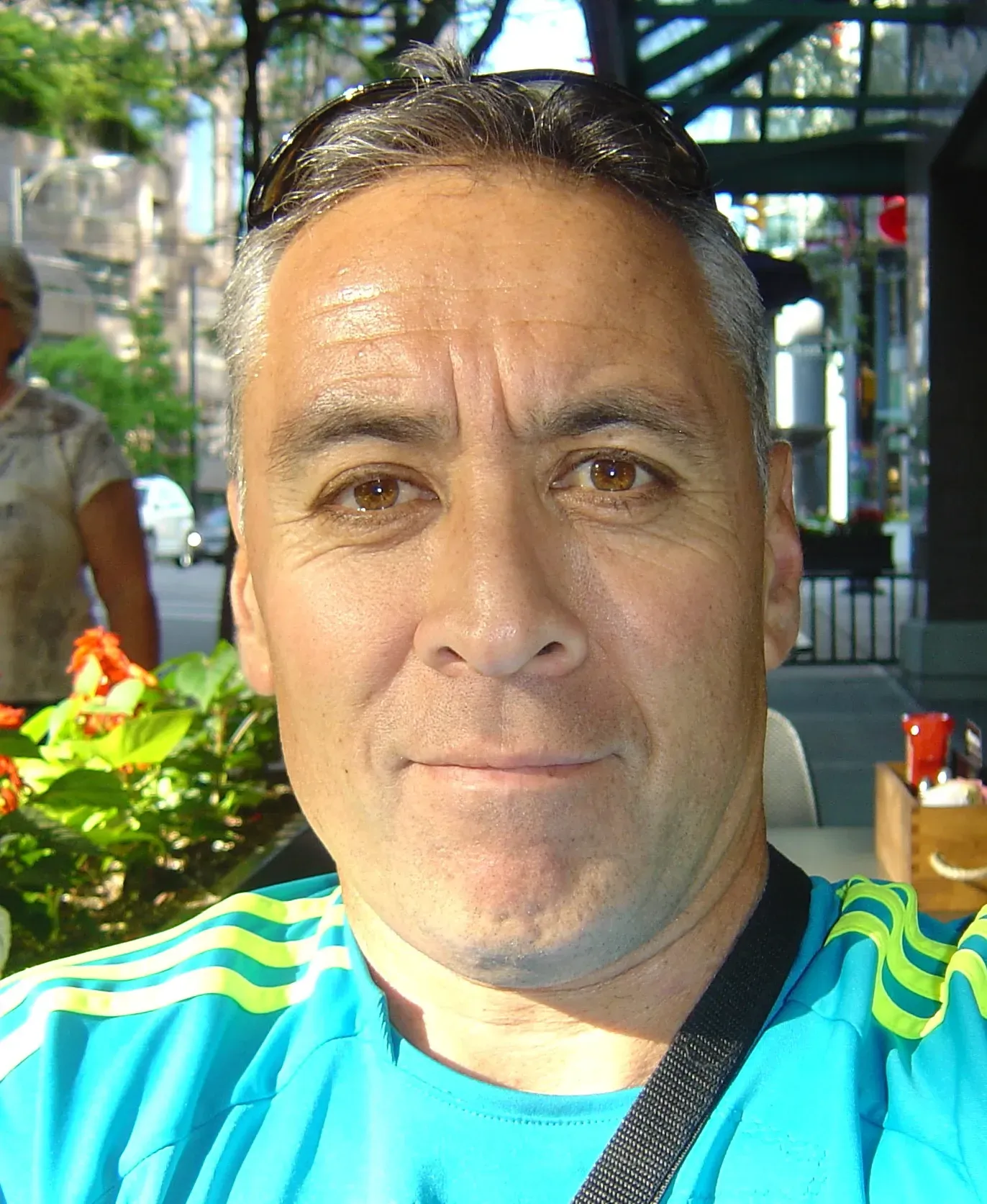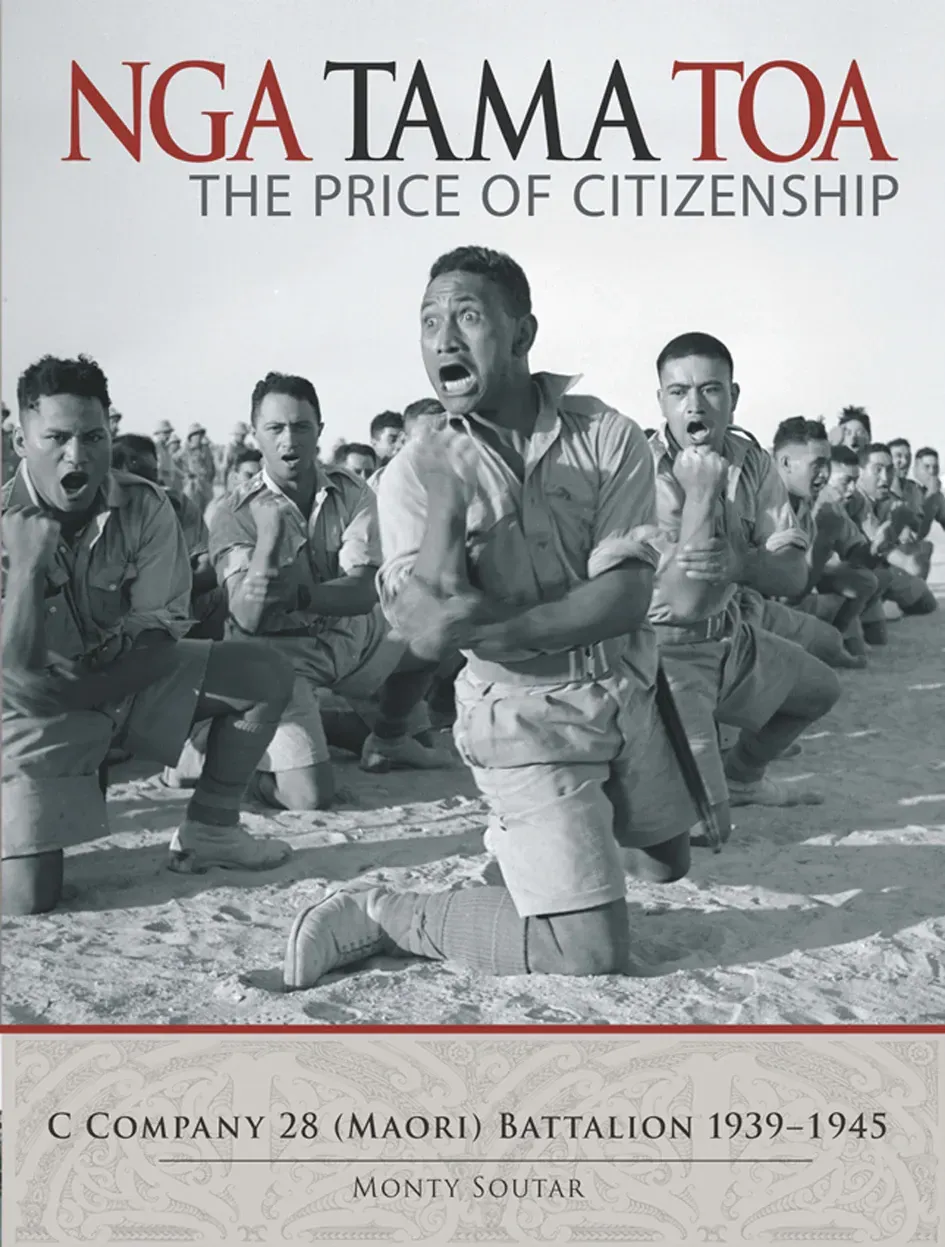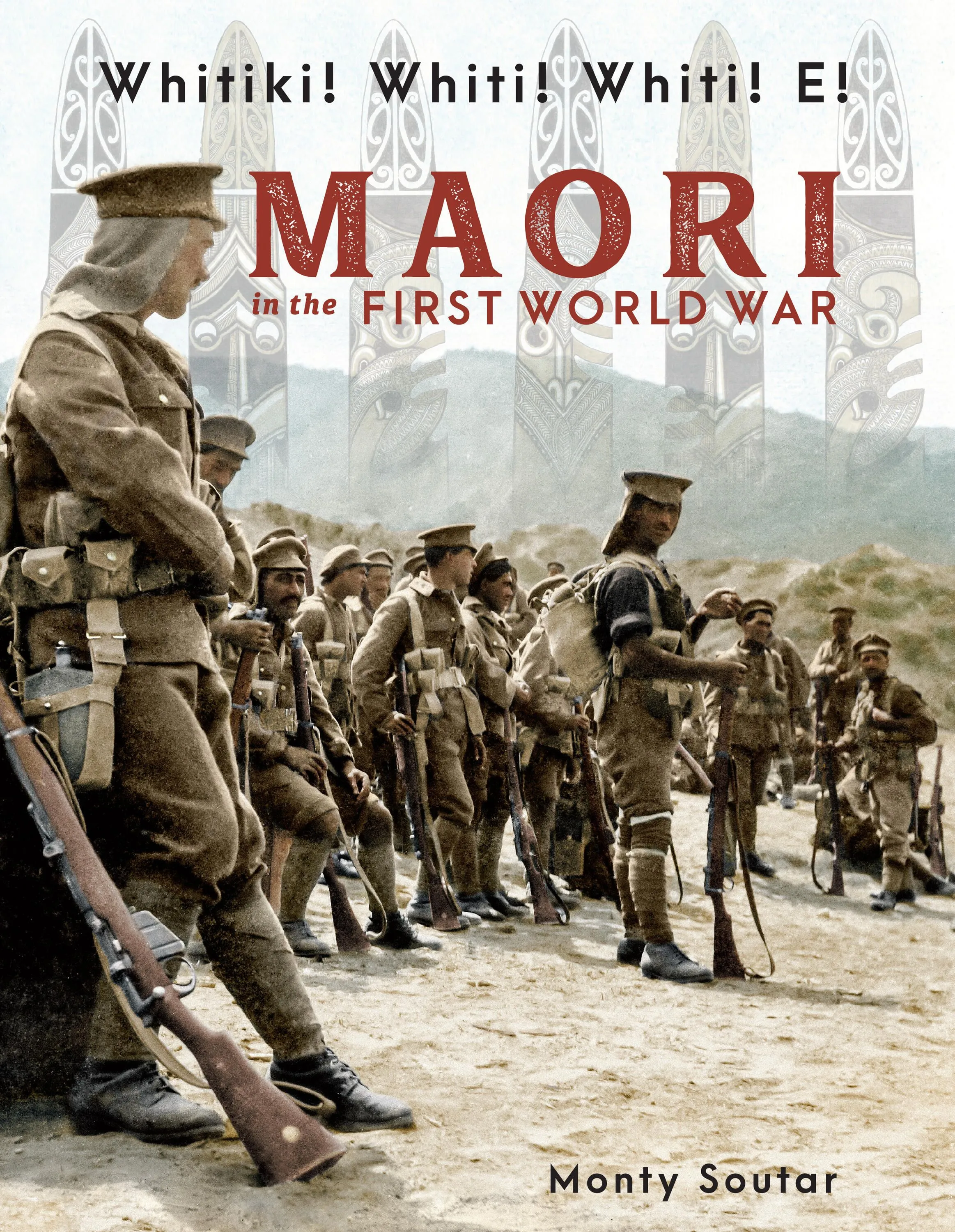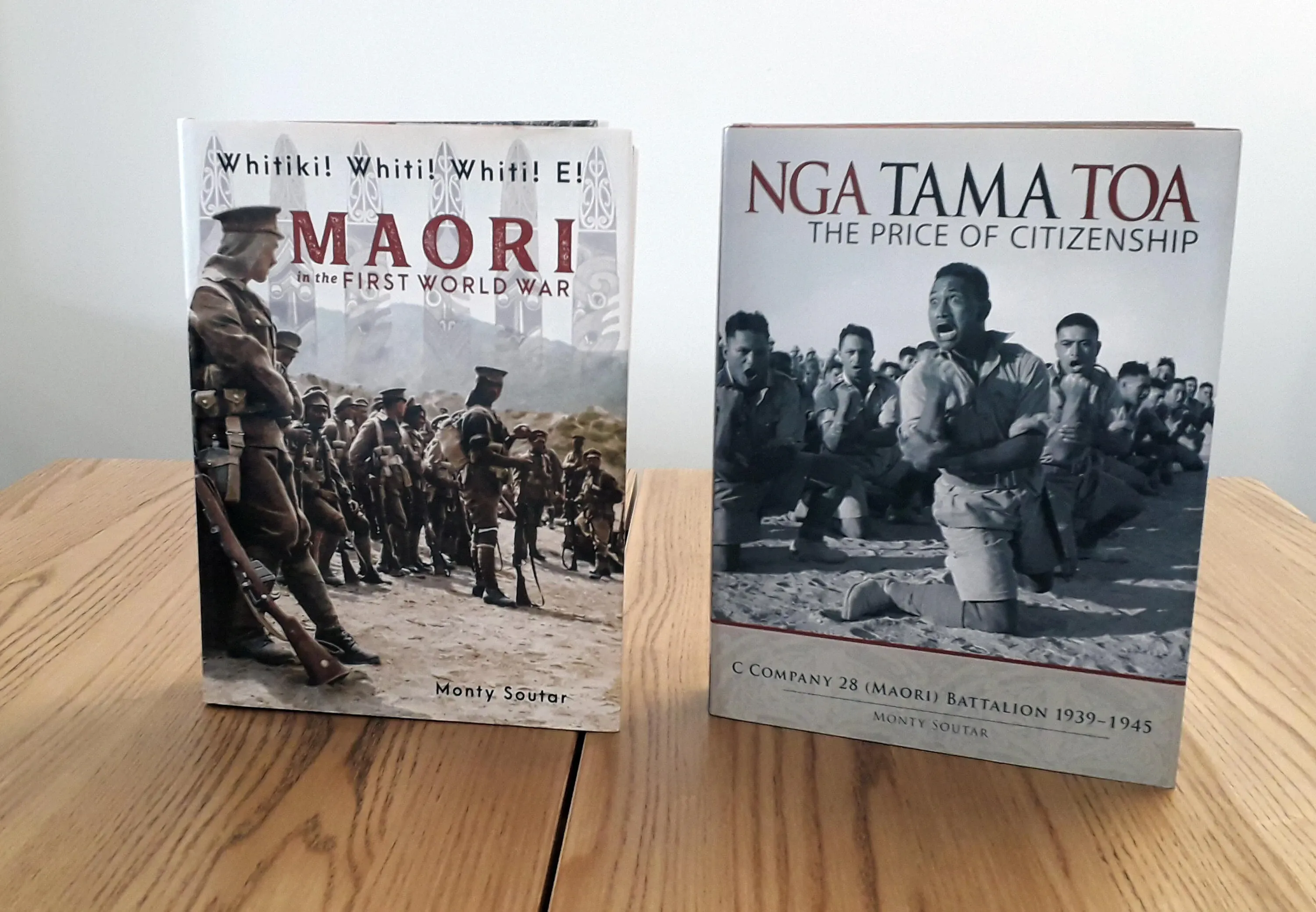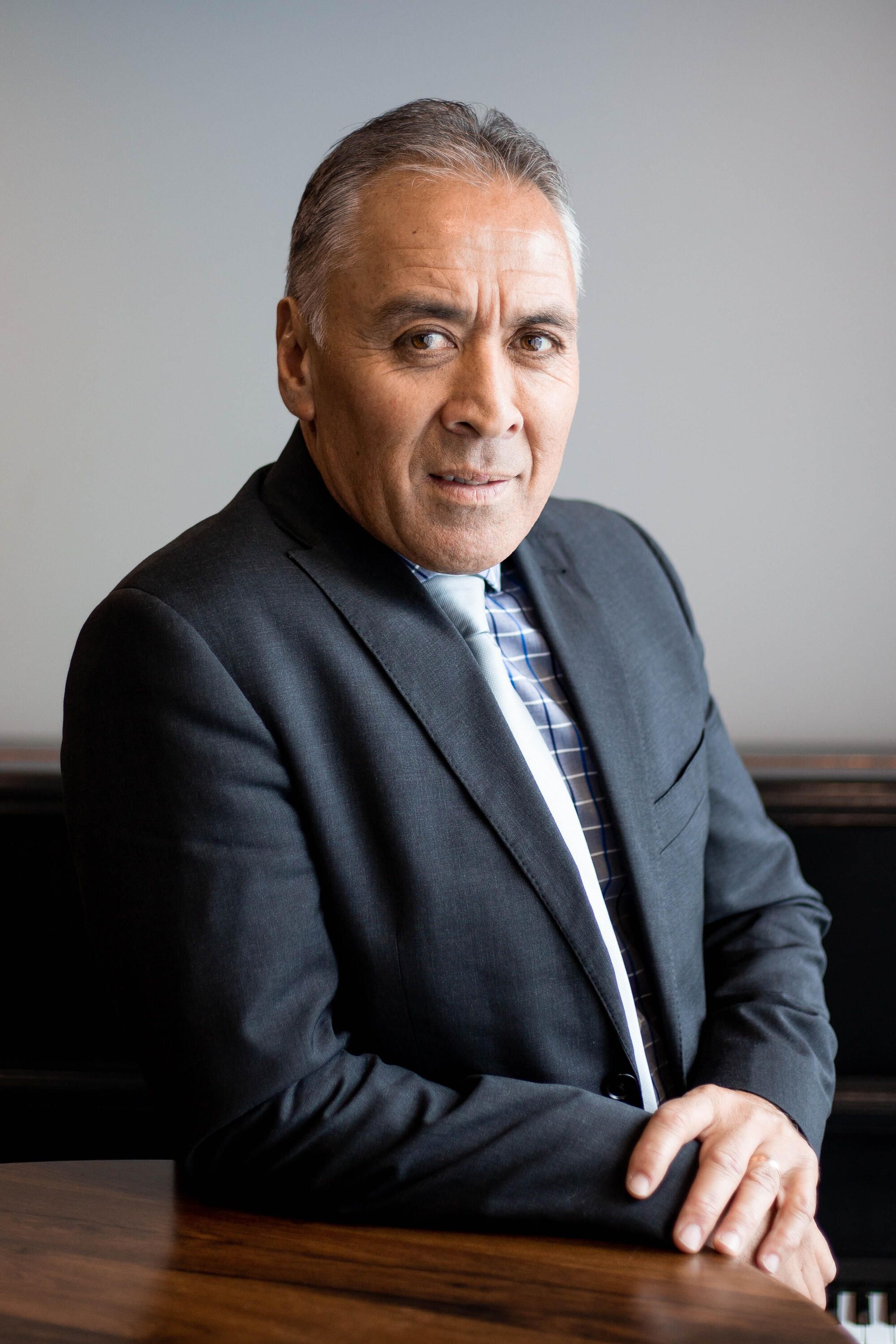Voice of the Voiceless
Written by
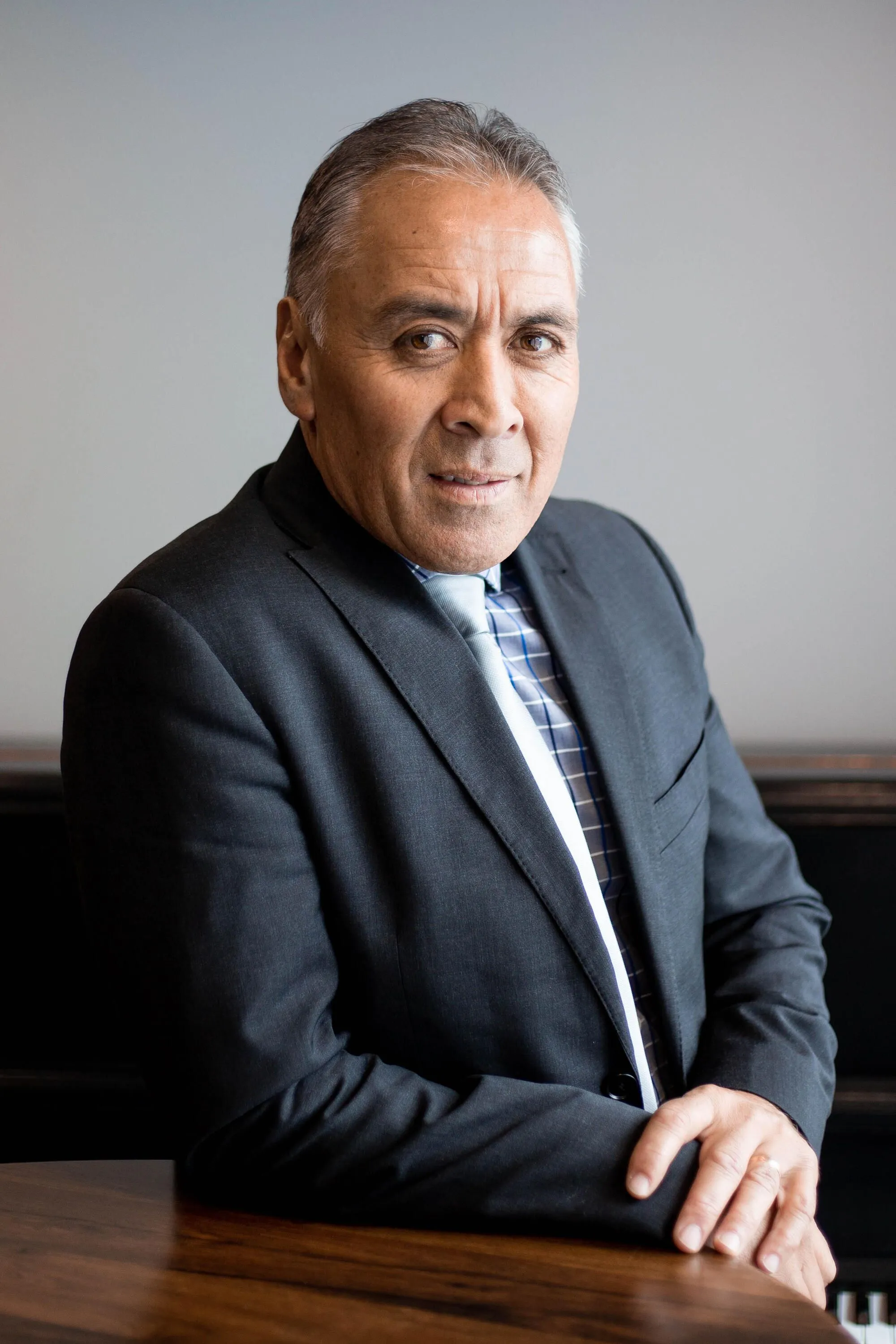
Dr Monty Soutar has made a career out of documenting Aotearoa’s history - now, he’s created history of his own.
He’s just been awarded this year’s Creative New Zealand Michael King Writer’s Fellowship - a biennial honour that supports recognised writers of any genre to work on a major project.
In Soutar’s case - it’s completing a major work: Kāwai – a saga from the uttermost end of the Earth, a trilogy of historical novels that address the impact of colonisation in Aotearoa, each told from a Māori perspective.
“I’m over the moon,” proclaims Soutar (Ngāti Porou, Ngāti Awa, Ngāi Tai ki Tamaki, Ngāti Kahungunu) on the prestigious fellowship, “because it says to me that others believe in what I’m trying to achieve with this novel series. It also gives me confidence that despite this being a new genre for me, the panel who recommended me for the fellowship see something in my writing.
“I’m honoured that it’s the Michael King Fellowship too. He was one of the most influential writers about Māori history for me in my youth.”
Reflecting Māori reality
Hearing the late Michael King speak while still a first-year student must have left a lasting impact on Soutar, as he has gone on to follow a similar path to be recognised as one of Aotearoa’s leading historians.
Two of his major research and publication projects; Nga Tama Toa: Price of Citizenship: C Company 28 (Maori) Battalion 1939-1945 and Whiti!Whiti! Whiti! E! Maori in the First World War, have seen him focus on topics long overlooked in New Zealand’s historical accounts.
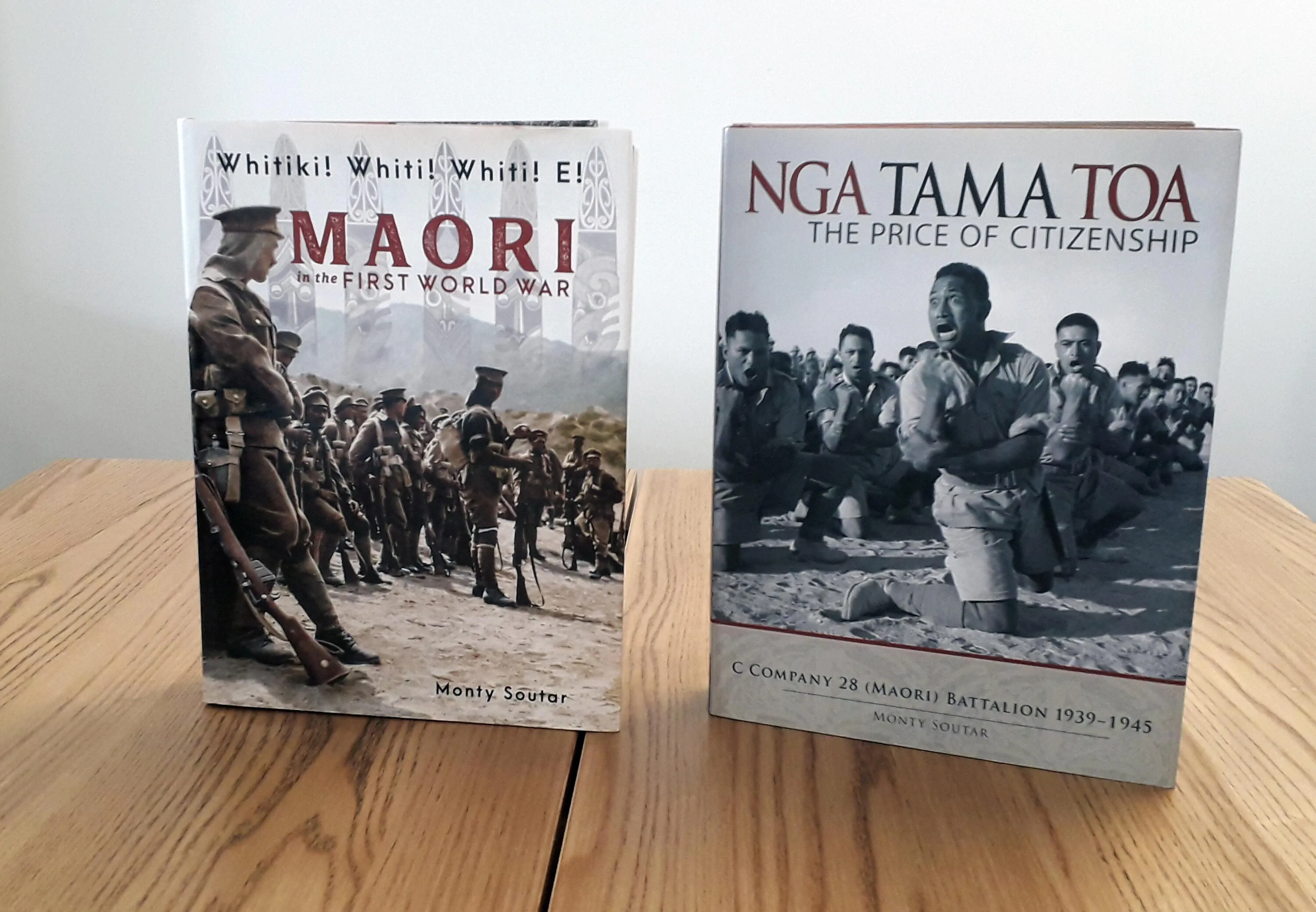
Monty Soutar's well-respected Māori history publications. Photo: Bateman Publishers.
Speaking of what ignited this passion to tell the stories of those who were not given the voice to do so, Soutar explains, “as a young primary school teacher, I realised early on that the history being taught in schools did not reflect Māori reality. I felt that in itself was part of the reason so much latent talent in Māori youth was being wasted.
“It gave me the impetus to start researching and writing Māori history. Identity is so deeply tied up with knowing your past and that became a driver for me. I was always confident of my place in the world because I had a strong grounding in who I was, where I came from, and who my forebears were. The oral historical accounts that I was taught and which I was privy to on the marae were of positive Māori male and female role-models.
“I felt if I could share that with New Zealanders, the stereotypes and racism that have been so much a part of our society might begin to change. And if they didn’t, at least people would have other perspectives presented to them before they passed judgement on ethnicities that weren’t their own.”
2021 Creative NZ Michael King Writer's Fellowship recipient, Dr Monty Soutar. Photo: Supplied.
Reaching new audiences
Bringing this kaupapa to fresh eyes is a major drive behind Soutar’s new project of historical fiction novels, inspired by true events - which thanks to the Fellowship, now has $100,000 worth of backing.
“Kāwai, (lineage), is an epic historical adventure, based on New Zealand history, that brings Māori experience of colonialism to national and global audiences. It lays bare the role of colonisation in shaping our country, but it also balances that with an honest appraisal of Aotearoa prior to European colonisation,” says Soutar.
These creative interpretations of historical events are based on oral narratives and stories in whakapapa books, although the characters, ritual, religion and rhythms of daily life are real - with the first of the trilogy to be published in October.
“I have been privileged in my life with access to guarded information and I see Kāwai as one to repay the faith my elders had in me. I have an important story to tell and I think the trilogy has the very real potential to provide an education about New Zealand's history that textbooks in mainstream schools have missed.”
'Talent has been given to you for a purpose'
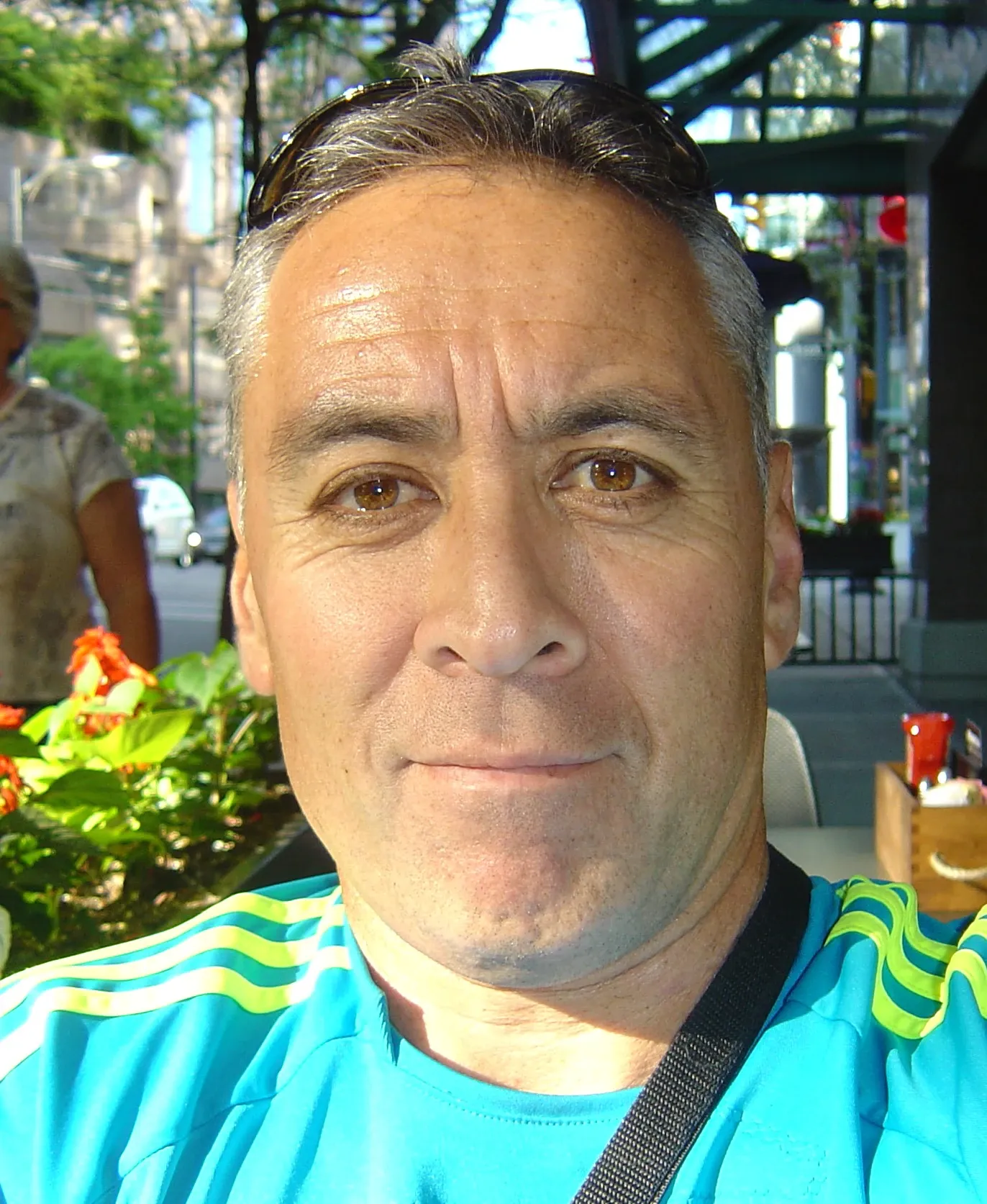
Soutar’s successful career has been carved out through persistence and patience, qualities he recommends for all wanting to find their creative calling.
“There’s an old Maori saying - ‘E tārai te waka taua i te rā kōtahi? E whānau rānei te iwi i te wā kōtahi?’ Can a war canoe be completed in one day? Can a tribe be born all at once?
“Be prepared to spend some time growing and honing your craft. I never studied history at school because my principal said it wouldn’t help me get a job. It wasn’t until some eight years out of school that I realised I had an interest in historical writing, but still I didn’t really pursue writing until I hit my thirties.
“It won’t happen right away, but it will happen if you persist.”
Soutar continues, “my advice is to read, read, read. Creative writing, I often find, is prompted by words and ideas which you think are your own, but stem from something you’ve read or experienced in the past.
“And if you discover you have writing talent, then let me assure you, that talent has been given to you for a purpose. Don’t let anyone talk you out of pursuing your calling.”
